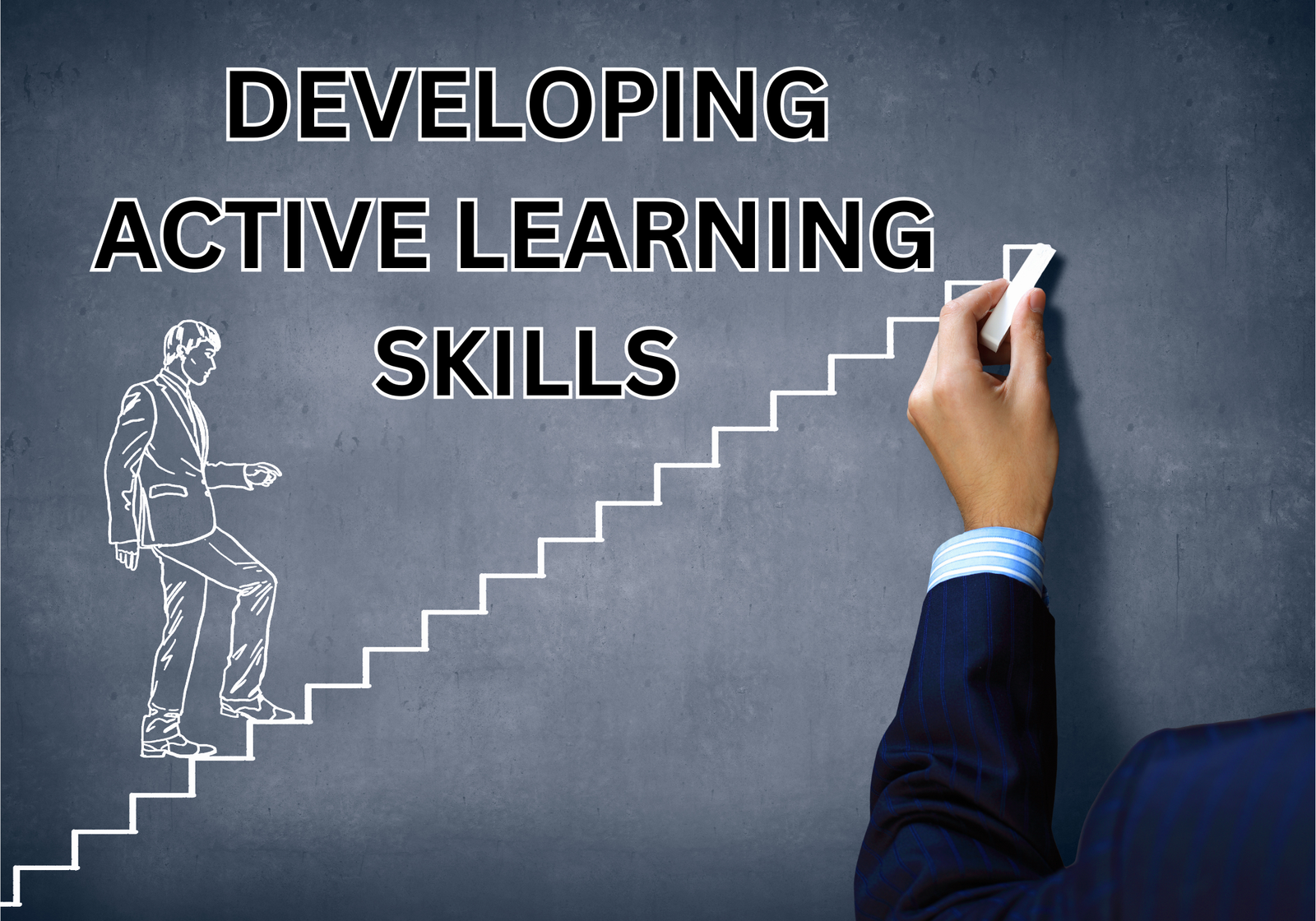In today fast-paced world simply memorizing information is not enough to truly succeed you need to develop active learning skills active learning is about engaging with the material thinking critically and applying what you learn in real-life situations instead of passively absorbing information active learners ask questions analyze concepts and seek deeper understanding this approach not only improves knowledge retention but also enhances problem-solving and decision-making abilities active learning can take many forms such as summarizing information in your own words participating in discussions or practicing hands-on activities it requires curiosity effort and a willingness to challenge yourself.
By staying engaged and taking responsibility for your learning you become more independent and confident in your abilities developing active learning skills is especially important in education and professional growth it helps students grasp complex topics more effectively and allows professionals to adapt to new challenges you studying for an exam or learning a new skill at work actively engaging with the material leads to better results by adopting active learning techniques you can turn learning into an enjoyable and rewarding experience.
Understanding the Importance of Active Listening:
Active listening is more than just hearing words it is about fully focusing understanding, and responding thoughtfully in a conversation it plays a crucial role in building strong relationships improving communication and preventing misunderstandings when you practice active listening you show the speaker that you value their thoughts and feelings which fosters trust and respect it involves maintaining eye contact nodding and giving verbal feedback to show that you are engaged instead of thinking about what to say next an active listener concentrates on the message being conveyed.
Many people struggle with listening because they are easily distracted or eager to share their own opinions by practicing patience and mindfulness you can improve your ability to listen attentively when you truly listen you gain deeper insights understand different perspectives and respond more effectively active listening is not just about words it also involves picking up on tone emotions and body language developing this skill can transform your interactions making them more meaningful and productive the more you practice the better you become at connecting with others and building strong lasting relationships.
Preparing to Listen Actively:
Active listening starts even before a conversation begins being mentally and physically prepared helps you focus on the speaker and fully understand their message one of the first steps is eliminating distractions such as putting away your phone turning off background noise and maintaining eye contact a clear and open mind is also essential try to set aside personal biases or preconceived ideas so you can listen without judgment another key aspect of preparation is having a genuine interest in the conversation when you approach listening with curiosity and patience it becomes easier to stay engaged good posture nodding occasionally and using encouraging facial expressions show the speaker that you are ready to listen.
Mindfulness before a conversation can help you stay present and focused if you find your mind wandering gently bring your attention back to the speaker taking a deep breath and reminding yourself of the importance of listening can also help improve concentration by preparing yourself both mentally and physically you create an environment where meaningful communication can take place when you make active listening a habit your relationships improve misunderstandings decrease and you become a more effective communicator in all areas of life.
Manage your Emotion:
Managing your emotions is an essential skill that helps you stay calm make better decisions and build healthier relationships emotions are a natural part of life but if they are not controlled they can lead to impulsive actions misunderstandings and unnecessary stress the first step in managing emotions is self-awareness recognizing how you feel and understanding why you feel that way when you become aware of your emotions you can respond thoughtfully instead of reacting impulsively practicing deep breathing mindfulness or taking a short break can help you regain control in stressful situations another important aspect is expressing emotions in a healthy way.
Instead of bottling up feelings or reacting with anger find positive outlets like talking to a trusted friend journaling or engaging in activities that bring you joy learning to manage emotions also involves developing patience and empathy which allows you to handle conflicts more peacefully it important to remember that emotions are temporary and taking a step back before reacting can prevent regretful decisions over time emotional management becomes easier with practice and self-reflection by staying in control of your emotions you improve your mental well-being strengthen relationships and navigate life challenges with confidence and resilience.
Use open and Relaxed Body:
Your body language plays a crucial role in how you communicate with others using an open and relaxed posture helps create a positive and comfortable environment for conversations when you keep your arms uncrossed maintain eye contact and relax your shoulders you show that you are approachable and engaged a tense or closed-off posture like folding your arms or looking away can make you seem uninterested or defensive even if that not your intention relaxing your body also helps you stay calm and focused making it easier to listen and respond thoughtfully
These small but powerful gestures can make others feel heard and respected improving both personal and professional interactions practicing deep breathing can help release tension and keep your body language natural the more you become aware of your posture and gestures the better you can connect with people and create meaningful conversations by using open and relaxed body language you not only appear confident but also encourage trust and positive communication in every interaction.


